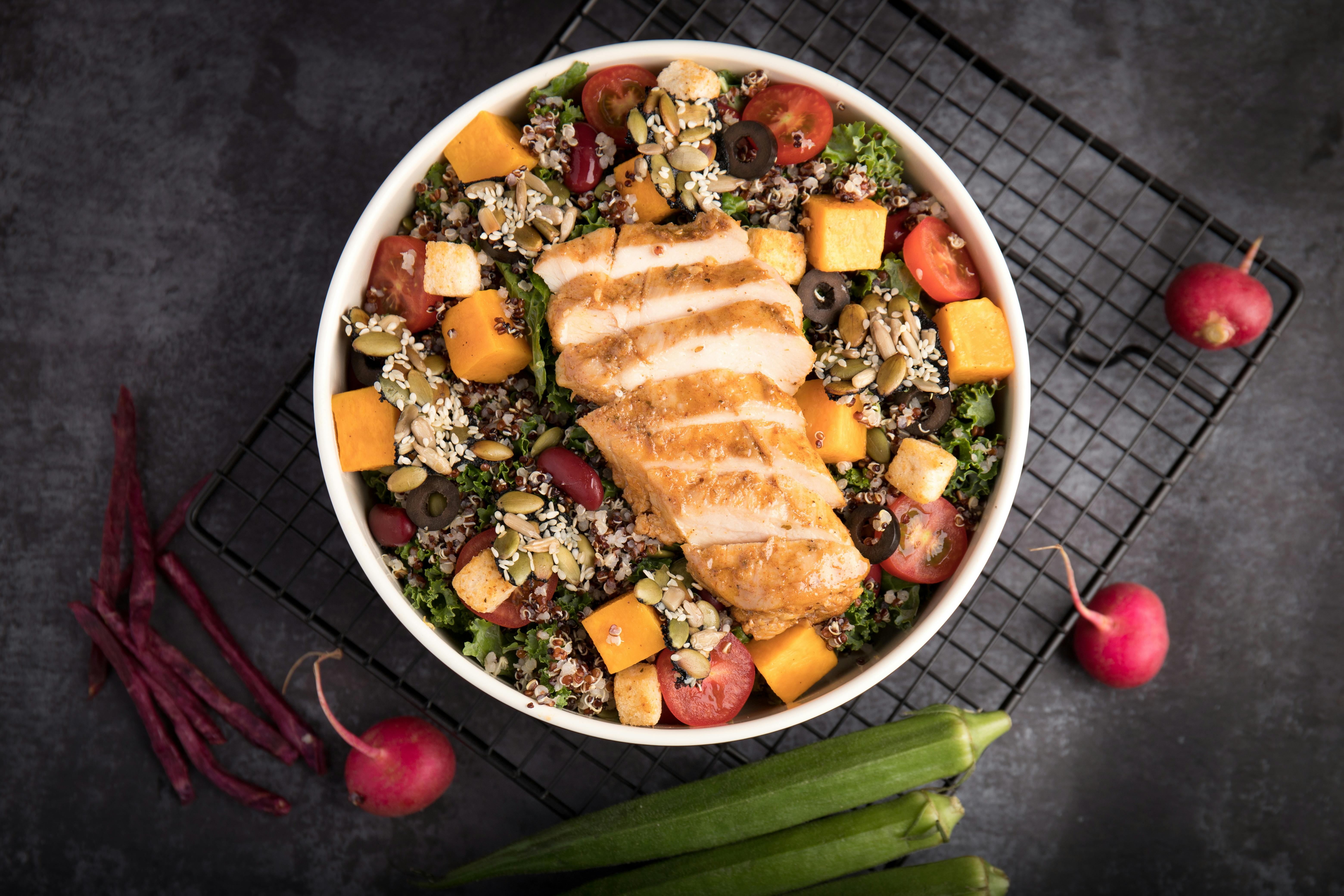
Whether you are training to lose weight, boost your energy, or simply feel stronger, your results depend heavily on what you feed your body. Fitness training, especially resistance or strength-focused workouts, puts demands on your body that you need to replenish and support. If you are working hard in the gym but not seeing the gains, these 10 nutrition tips will help fuel your progress.
1. Prioritize Protein
Protein is essential for muscle repair and growth. Aim to include a high-quality source of protein in every meal—lean meat, eggs, tofu, legumes, or Greek yogurt. If your goal is muscle building, aim to eat about 1.2 to 1.7 grams of protein per kilogram of body weight daily. Distributing this intake evenly throughout the day will maximize muscle protein synthesis.
2. Consume Those Carbs
Carbohydrates are your training fuel. Your body converts carbs into glycogen, which is stored in muscles and used during workouts. If you are too low on carbs, you will likely feel sluggish or hit a wall mid-session. Quality sources of carbs include brown rice, oats, quinoa, sweet potatoes, and whole grain bread. Avoid refined carbs like white bread, sugary cereals, and pastries.
3. Support With Supplements
Supplements can support your training, recovery, and overall health. Whey protein provides convenient muscle repair; creatine monohydrate can boost strength and performance; branched-chain amino acids (BCAAs) help reduce muscle fatigue and support recovery; and glucose disposal agents (GDAs) can improve nutrient partitioning and help manage blood sugar. Stick to tried and tested brands such as Gaspari Nutrition, and consult a healthcare provider for advice.
4. Choose Healthy Fats for Hormones
Fat is fundamental for hormone production, including testosterone, which plays a significant role in muscle hypertrophy, strength gains, and the maintenance of a healthy metabolic rate. Go for heart-healthy fats like avocados, olive oil, nuts, seeds, and fatty fish like salmon. Avoid highly processed oils or fried foods, which may promote inflammation or sluggishness.
5. Time Your Pre-Workout Meal
Eating the right meal before training gives your body the fuel it needs to perform. Ideally, eat a balanced meal with carbs and protein 1.5 to 2 hours before working out. If you are strapped for time, a smaller snack like bananas with peanut butter or a protein shake 30-45 minutes before can do the trick. Avoid high-fat meals right before training—they digest more slowly and can make you feel heavy.
6. Plan Your Post-Workout Refuel
After training, your muscles are thirsty to absorb nutrients for recovery. This optimal for consuming nutrients is within 4-6 hours after your workout. A post-workout meal should include both protein and carbohydrates—something like a chicken and rice bowl, or a bowl of oatmeal with whey protein and fruit. This helps restore glycogen and kickstart muscle repair.
7. Remember Micronutrients
Vitamins and minerals do not get as much attention as macros, but they are just as critical for energy, metabolism, and muscle function. Leafy greens, colorful vegetables, berries, and whole foods supply vitamins A, C, D, E, magnesium, calcium, iron, and zinc to keep your body running smoothly. If you find that your diet lacks variety, consider a high-quality multivitamin to fill gaps.
8. Stay Hydrated
Dehydration can hurt your workout performance and slow recovery. Even a 1-2% drop in hydration can lead to noticeable fatigue and poor muscle function. Bring a water bottle with you to the gym and sip on it continuously throughout your training. Electrolytes (sodium, potassium, magnesium) are also important, especially after heavy training or if training outside in summer.
9. Meal Prep for Consistency
Consistency is what gets results, and meal prep helps you stay on track. Having healthy meals ready reduces the temptation to grab junk food or skip meals. Be sure to mix up your proteins, grains, veggies, and seasonings to give yourself plenty of variety. Batch-cooking or prepping ingredients ahead of time saves you from decision fatigue and accidental under-eating, too.
10. Beware of “Dirty Bulking”
If you are planning to put on weight, it can be tempting think you can eat everything in sight. But packing on too much fat along with muscle can slow you down and lead to health issues. Instead, aim for a lean bulk with a moderate calorie surplus, focusing on nutrient-dense, whole foods rather than fast food and sugary treats. Remember that quality food leads to quality gains!
Bonus Tip: Track But Don’t Obsess
Tracking macros, calories, and body measurements can provide useful data to evaluate your nutrition plan and workout results. However, try not to fall into the trap of obsessively counting every calorie or worrying over day-to-day fluctuations. This can add unnecessary stress and make the whole process feel restrictive. The goal is progress over time, not perfection every day.
Keep it Simple
Training without a proper nutrition plan is like trying to build a house with no bricks. The good news is that there is no need to overcomplicate it. Focus on eating well, fueling your body at the right time, and taking the appropriate supplements, and you will be amazed at the gains that you make. The key is consistency. Approach your fitness journey as a lifestyle, so it is more likely to be sustainable.